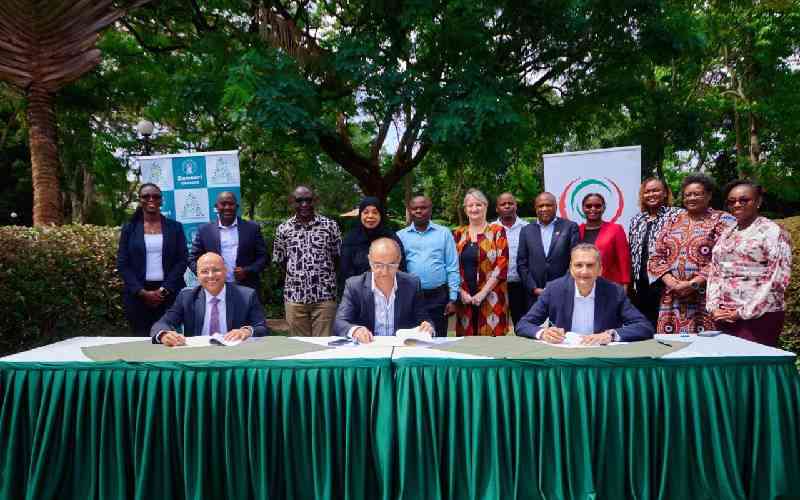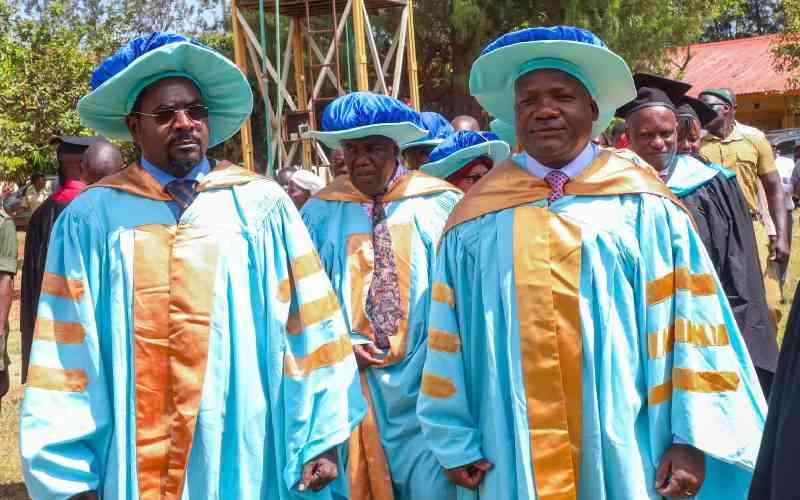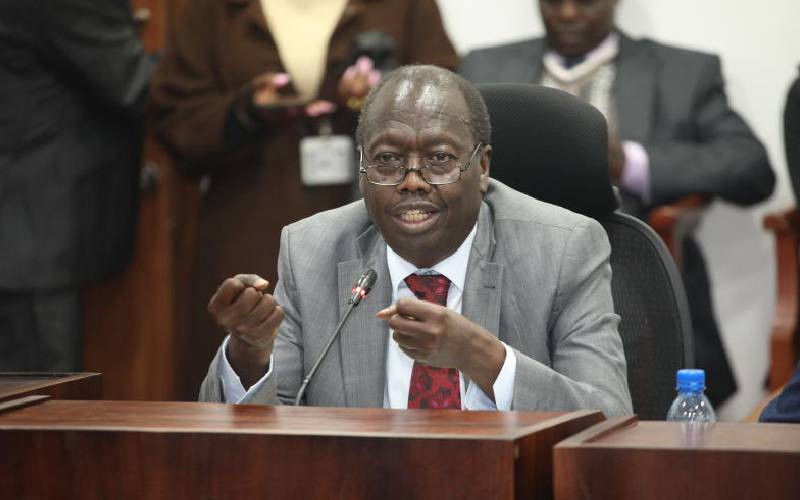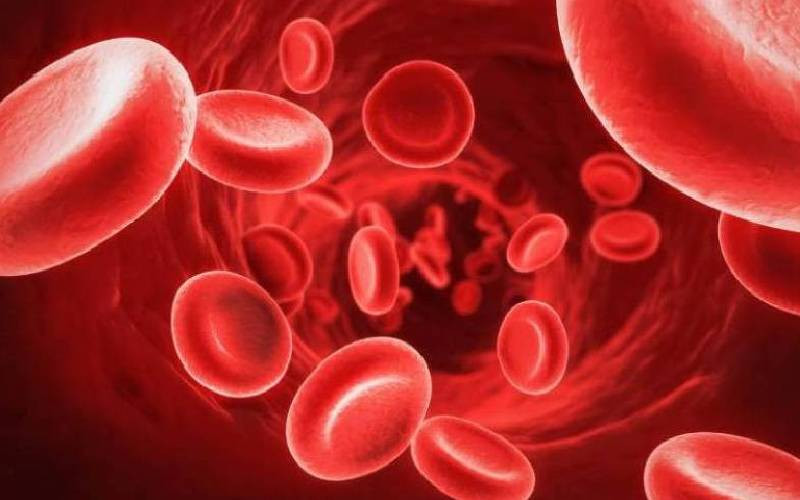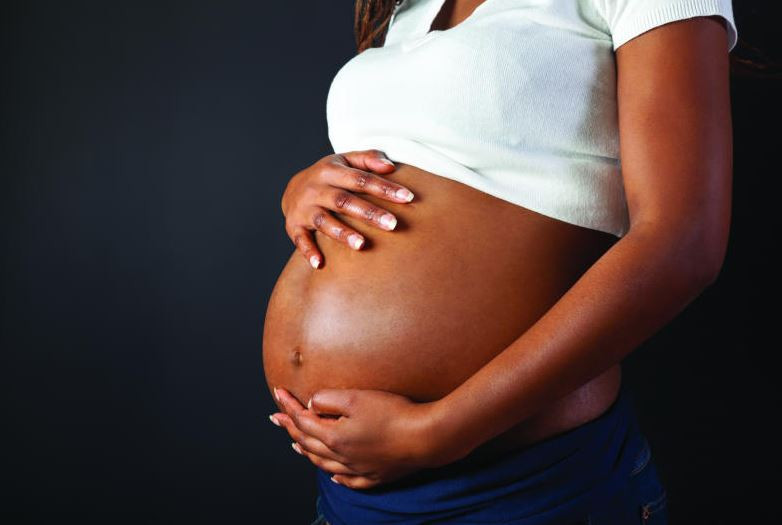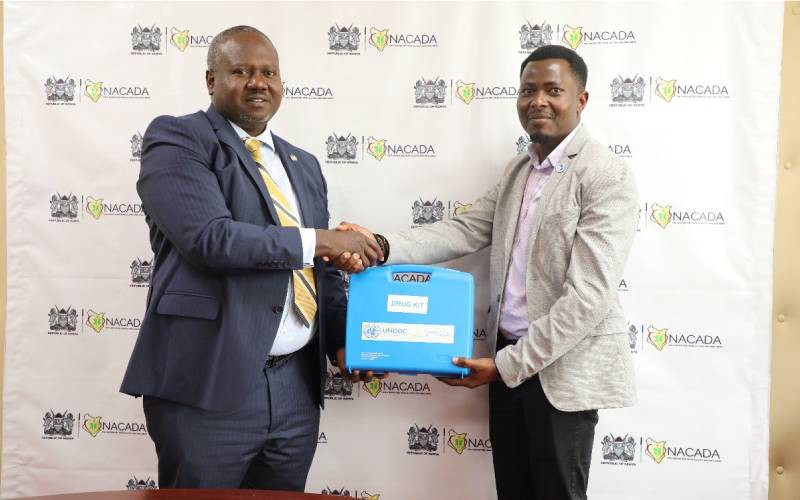
The war on drugs in Kenya has received a boost after the United Nations Office on Drugs and Crime (UNODC) donated 30 new drug and precursor testing kits in the fight against the vice.
In a statement on Monday, August 25, the National Authority for the Campaign Against Alcohol and Drug Abuse (NACADA) said the kits will strengthen enforcement and detection efforts across the country.
Each kit can conduct up to 500 tests, giving enforcement and laboratory teams capacity for 15,000 checks as Kenya steps up efforts against narcotics and precursor chemicals.
NACADA Chief Executive Anthony Omerikwa said the donation will help agencies detect drugs and precursor substances on-site and act faster against traffickers.
“This donation is a boost to our national response to drug and substance abuse. With these kits, our teams will be better equipped to detect narcotics quickly and accurately. It will strengthen enforcement and help us close in on traffickers who put our youth at risk,” noted Omerikwa.
He added that early detection would also support prevention programmes.
“By identifying illicit substances at the source, we can disrupt supply chains before they reach our communities. This saves lives and protects the future of our young people,” explained Omerikwa.
Boniface Wilunda, representing the UNODC’s Nairobi office, said the kits were designed to be reliable and field-friendly.
- Youth battle cannabis use and few are breaking free
- How drug abuse threatens fight to end Aids deaths, HIV infections
- How needle sharing, risky traditions are fuelling hepatitis crisis
- Alcohol can seriously affect a young brain
Keep Reading
“These kits will empower NACADA and other agencies to act with speed in identifying substances, thereby strengthening Kenya’s capacity to uphold the law and protect its people,” observed Wilunda.
The donation comes as Interior Cabinet Secretary Kipchumba Murkomen leads a 100-day rapid results initiative (RRI) targeting illicit alcohol and drugs.
It also aligns with the National Alcohol Policy 2025 (NAP 2025), which calls for evidence-led enforcement and international collaboration.
 The Standard Group Plc is a multi-media organization with investments in media
platforms spanning newspaper print
operations, television, radio broadcasting, digital and online services. The
Standard Group is recognized as a
leading multi-media house in Kenya with a key influence in matters of national
and international interest.
The Standard Group Plc is a multi-media organization with investments in media
platforms spanning newspaper print
operations, television, radio broadcasting, digital and online services. The
Standard Group is recognized as a
leading multi-media house in Kenya with a key influence in matters of national
and international interest.


